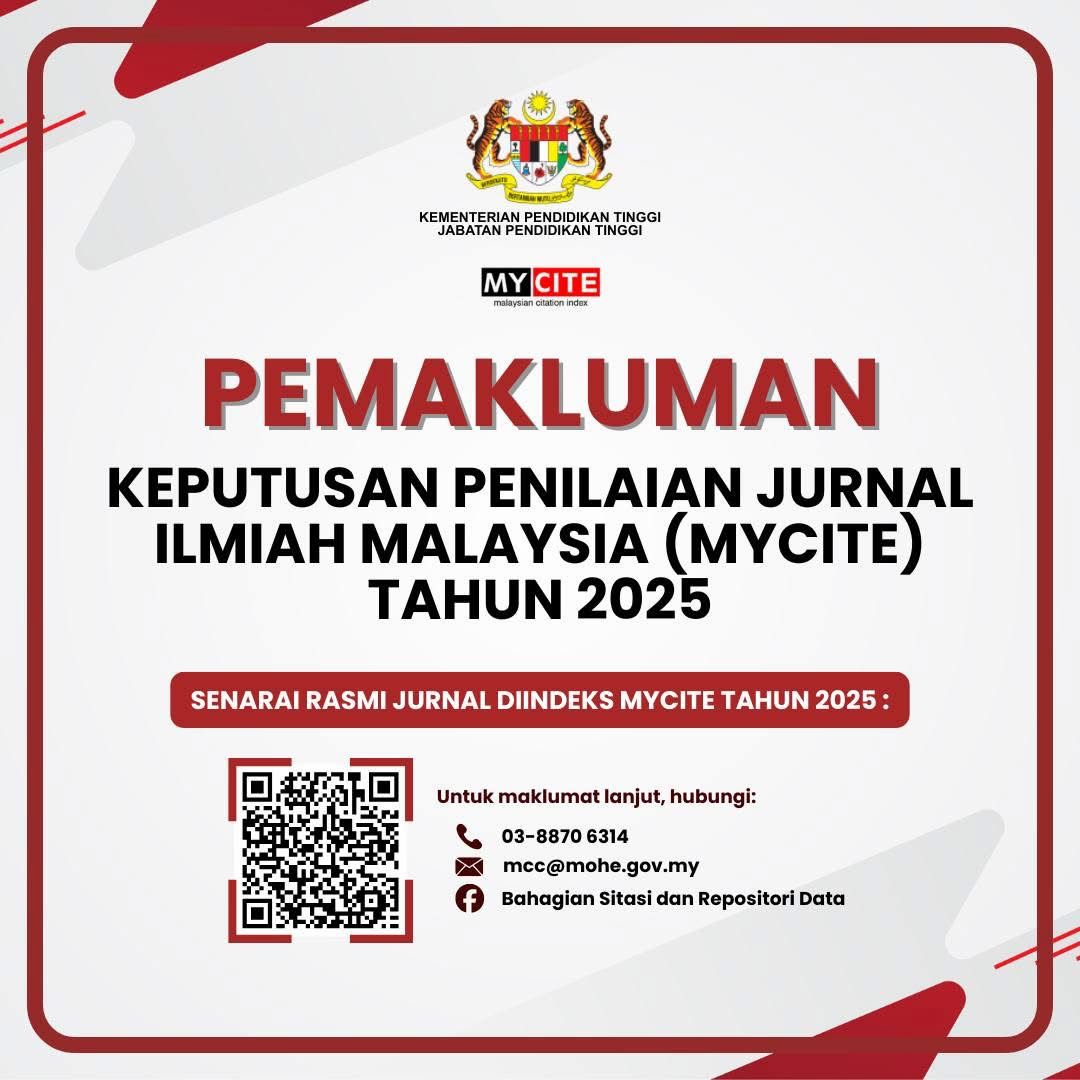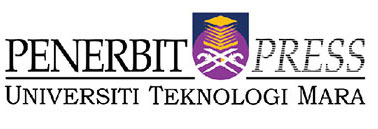Kepemimpinan Ibu Soko Berdasarkan Kerangka Dasar Penerapan Nilai-Nilai Islam dalam Pentadbiran
The Leadership of Ibu Soko Based on the Framework of Inculcation of Islamic Values Policy
DOI:
https://doi.org/10.24191/idealogy.v10i2.870Abstract
ABSTRAK
Kajian ini bertujuan untuk melihat kepemimpinan Ibu Soko berdasarkan kerangka konsep Dasar Penerapan Nilai-Nilai Islam dalam Pentadbiran yang diperkenalkan oleh kerajaan pada tahun 1985. Sebagai ketua wanita dalam masyarakat Adat Perpatih, Ibu Soko memainkan peranan yang besar dalam mensejahterakan dan mengharmonikan masyarakat. Dasar ini bertujuan untuk memasukkan unsur Islam dalam pentadbiran dan kehidupan rakyat Malaysia. Objektif kajian ini adalah untuk mengenal pasti nilai-nilai Islam dalam kepemimpinan Ibu Soko sebagai pemimpin wanita dalam pentadbiran masayarakat Adat Perpatih. Kajian ini menggunakan kaedah temu bual. Hasil kajian menunjukkan bahawa kesemua 11 nilai yang terdapat dalam dasar penerapan nilai-nilai Islam dalam pentadbiran yang diperkenalkan oleh kerajaan telah diamalkan dan diguna pakai oleh Ibu Soko dalam pentadbiran mereka sebagai pemimpin wanita dalam masyarakat. Hal ini membuktikan bahawa dalam pentadbiran Ibu Soko telah wujud nilai-nilai Islam sejak lama dahulu. Sebagai pemimpin, Ibu Soko memainkan peranan penting dalam membentuk masyarakat yang harmoni, adil dan sejahtera dengan menanamkan nilai-nilai Islam dalam setiap aspek pentadbiran. Kesimpulannya, kepemimpinan yang menerapkan nilai Islam dapat membina sebuah pentadbiran yang bukan sahaja efisien, tetapi mampu membawa kepada keadilan sosial, kejujuran, kebajikan masyarakat, keamanan dan keselamatan serta pembangunan seimbang. Secara tidak langsung dapat menjadi contoh dalam melahirkan pemimpin yang berwibawa serta membawa kesejahteraan kepada rakyat dan generasi akan datang.
Kata Kunci: Dasar Penerapan Nilai-Nilai Islam dalam Pentadbiran, Kepemimpinan Ibu Soko, Nilai Islam
ABSTRACT
This study aims to examine the leadership of Ibu Soko based on the conceptual framework of the Policy on the Application of Islamic Values in Administration, introduced by the Malaysian government in 1985. As a female leader in the Adat Perpatih community, Ibu Soko plays a significant role in promoting the well-being and harmony of society. This policy seeks to incorporate Islamic principles into governance and the lives of Malaysians. The objective of this study is to identify the Islamic values present in the leadership of Ibu Soko as a female leader within the Adat Perpatih community administration. This study employs an interview method. The findings indicate that all 11 values outlined in the policy on the application of Islamic values in administration introduced by the government have been practiced and adopted by Ibu Soko in their leadership roles. This proves that Islamic values have long been embedded in the leadership practices of Ibu Soko. As leaders, they play a vital role in shaping a harmonious, just, and prosperous society by instilling Islamic values in all aspects of governance. In conclusion, leadership that incorporates Islamic values can build an administration that is not only efficient but also promotes social justice, honesty, community welfare, peace and security, and balanced development. Indirectly, this can serve as a model in producing capable leaders who bring well-being to the people and future generations.
Keywords: Policy on the Application of Islamic Values in Administration, Ibu Soko Leadership, Islamic Values
References
Ahmad Nabil, A. & Tasmin, A. R. (2021). Kepimpinan Wanita Menurut Perspektif Hamka: Women Leadership from the Perspective of Hamka. Journal of Quranic Sciences and Research, 2(1),18-26. https://publisher.uthm.edu.my/ojs/index.php/jqsr/article/view/8109.
Dasar Penerapan Nilai-Nilai Islam dalam Pentadbiran 1985.
Fithriah, W., Mualimin, M. S., & Setiyawan, G. (2018). Pengaruh Sistem Matrilineal dalam Adat Negeri Sembilan: Perspektif Syarak. Malaysia Journal of Syariah and Law 8(1): 83-91.
Hasan al-Banna, M. (2018). Islam dan Pembentukan Kepimpinan Berkualiti. Zulfaqar Journal of Defence Management, Social Science & Humanities, 1(1). Capaian dari https://zulfaqarjdmssh.upnm.edu.my/index.php/zjdmssh/article/view/16.
Nurlisa Syuhada, M. R., & Mohd Yuszaidy, M. Y. (2023). Adat Perpatih di Luak Johol, Negeri Sembilan: Peranan Ibu Soko. Jurnal Wacana Sarjana, 7(3), 1-13. Retrieved from https://spaj.ukm.my/jws/index.php/jws/article/view/538.
Mohd Nasir, S. (2022). Bijaksana Pemimpin Dalam Pengurusan Kepimpinan Adat Di Minangkabau Dan Adat Perpatih di Negeri Sembilan. Prosiding SEMINANG 2022. Institut Alam dan Tamadun Melayu (ATMA) - 21 April 2022.
Norhalim, I. (2005). Peranan dan Kedudukan Wanita Adat Perpatih. Kertas kerja yang dibentangkan dalam Persukuan Adat Perpatih dan Makanan Tradisional NegeriSembilan Darul Khusus anjuran bersama Lembaga Muzium Negeri Sembilan & Universiti Kebangsaan Malaysia. UKM-19 Disember 2005.
Siti Fatimah, M. N. (2022). Kepimpinan Islam Dalam Tadbir Urus Insan: Satu Tinjauan. Cifer International Journal of Islamic Finance June 2022, Vol. 1, Issue. 1.
Sri Qamariah, M. S., Nor Azita, C. D., Saliza, I., & Midiyana, M. (2023). Kepemimpinan Ibu Soko Dalam Pentadbiran Masyarakat Adat Perpatih. Prosiding Persidangan Antarabangsa Sains Sosial & Kemanusiaan kali ke-8 (PASAK8 2023). Universiti Islam Selangor – 11 Mei 2023.
Downloads
Published
Issue
Section
License
Copyright (c) 2025 UiTM Press

This work is licensed under a Creative Commons Attribution-NonCommercial-NoDerivatives 4.0 International License.
UiTM Press (the Publisher) has agreed to publish the undersigned author’s paper in Idealogy Journal. The agreement is contingent upon the fulfilment of a number of requirements listed below.
1. The undersigned author warrants that the paper entitled below is original, that it is not in any way libellous or unlawful in Malaysia, that it does not infringe any copyright or other proprietary right. The undersigned hereby represents and warrants that he/she is the author of the paper, except for material that is clearly identified as to its original source, with permission notices from the copyright owners where required. The undersigned represents that he/she has the power and authority to sign and execute this agreement.
2. The undersigned author warrants that the paper entitled below has not been published elsewhere, and also it will not be submitted anywhere else for publication prior to acceptance/rejection by this Journal.
3. By submitting the paper entitled below, the undersigned author agrees to transfer the rights to publish and distribute the paper in an international e-journal (entitled above) to Publisher.
4. The undersigned author agrees to make a reasonable effort to conform to Publisher's submission guidelines and to liaise with the editor to ensure that the requirements of these guidelines are met to a reasonable degree.
5. The corresponding author signs for and accepts responsibility for releasing this material on behalf of any and all coauthors. This agreement is to be signed by at least one of the authors who has obtained the assent of the co-author(s) where applicable. After submission of this agreement signed by the corresponding author, changes of authorship or in the order of the authors listed will not be accepted.




